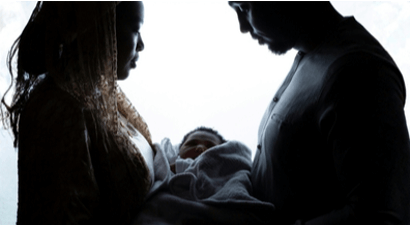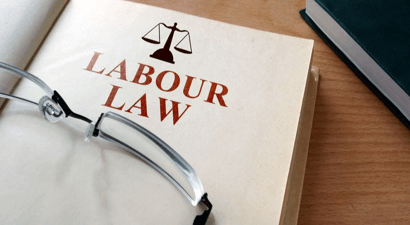WHO’S SCHOOLING WHO?
Pretoria High School for Girls, a public girls’ school based in South Africa’s administrative capital, is an institution with a rich heritage dating as far back as 1902. In recent years, however, the school has been making headlines for all the wrong reasons.
In 2016, a report by the Gauteng Department of Basic Education (“the Department”) found that black scholars at the school were unfairly discriminated against after they had held protests relating to the school’s hair policy. Moreover, the Department found that black pupils had been victims of racism, after they were referred to as monkeys, amongst other things. Pursuant to the 2016 Report, the Department undertook to work closely with the school to foster a culture of trust and mutual respect amongst teachers, pupils and parents. Regrettably, there have been other race – related eruptions at the school since then. The latest of which has been widely reported on in the media since July of this year. At the centre of the recent saga, are 12 matriculants who were accused of racism (“the 12”).
Following the complaints about the 12, the School’s Governing Body (“the SGB”) suspended them pending an investigation. After completing its investigation, the SGB found that there was insufficient evidence to find any of the 12 guilty of racism. Once the SGB Report was issued, many would have thought that would be the end of this chapter, at least. However, on the morning of 5 August 2024, it was reported that the Department issued a media statement stating that it would be conducting its own independent investigation to determine whether a culture of racism exists at the school. This latest move by the Department raises a few crucial questions, some of them being:
- Can the 12 be disciplined afresh if the Department finds them guilty of racism?
- Does the Department have the authority to discipline members of the SGB?
- If the Department finds that a culture of racism exists at the school, can it discipline any of the staff members, including the headmistress?
The main purpose of this article is to address these questions. Given that I do not have at our disposal any of the evidence pertaining to the issues at hand, I am ill – placed to make any comment on the merits of the case - and I shall not be doing so.
Can the 12 be disciplined by the Department?
To answer this question, it first needs to be established whether the Department has the authority to discipline scholars, in general. One of the foremost principles in employment law and disciplinary proceedings is that an individual can only be disciplined for alleged misconduct by their employer. Quite obviously, the Department is not the employer of the 12. Therefore, on this score, it appears that the Department cannot discipline them, irrespective of whatever findings it may arrive at in its investigation. This view is supported by sections 8 and 9 of the South African Schools Act No. 84 of 1996 (“the Schools Act”) which illustrate that only an SGB may institute disciplinary proceedings against a learner. I hasten to add, however, that in terms of the very same section 9, if a learner is to be expelled from a public school, only the Head of the Department may do so, not the SGB. The SGB may only recommend to the Head of the Department for a learner to be expelled, following a fair disciplinary process. In short, the SGB has the authority to attend to all matters pertaining to the disciplinary process, except for implementing the expulsion of a learner.
Even if I am misguided in this view, if the Department were to elect to discipline the 12, it would run into the significant hurdle of “double jeopardy”. This trite legal principle essentially holds that a person may not be prosecuted for an offence of which he or she has already been acquitted or sentenced. This principle constitutes an absolute defence in criminal law. In civil proceedings, including disciplinary proceedings, the strength of this defence has been cast into some doubt over the past decade or so in the labour courts. After much debate, the sentiment that seems to have been accepted was coined in the case of BMW (SA) (Pty) Ltd v Van der Walt [2000] 2 BLLR 121 (LAC), where the Labour Appeal Court held that it might be unfair in “exceptional circumstances” to block a second disciplinary hearing solely on the principle of double jeopardy. What exactly constitutes these exceptional circumstances is not clear.
So, in law at least, there remains the very remote possibility that the Department’s investigation may overturn the findings of the SGB’s investigation regarding the 12, and in so doing, recommend further disciplinary action against them, which may include expulsion. In my view, though, I do not foresee this to be a reasonable possibility. What is far more probable is that the 12 can continue with their lives without further disciplinary action hanging over their heads for the same issues under consideration. It appears that the Department’s investigation will be more concerned with the general ethos and culture of the school as opposed to investigating the actions of learners for the purposes of possible disciplinary action against them.
Does the Department have the authority to discipline members of the SGB?
The starting point before addressing this question lies in understanding the legal relationship between public schools and the Department of Basic Education. This relationship is governed by the South Schools Act. Section 23 of the Schools Act stipulates that an SGB shall be comprised of parents of learners at the school, educators at the school, members of staff at the school who are not educators, and learners at the school who are in grade 8 or higher.
In respect of a learner who is an SGB member, the views expressed above relating to the Department and a learner remains relevant. Moreover, in terms of section 32 (3) of the Schools Act, a member of an SGB who is a minor incurs no personal liability for any consequence of his / her membership of the SGB. In respect of SGB members who are staff members (educators and non – educators) they shall be discussed in due course below).
Therefore, I only intend to presently address this question in respect of SGB members who are parents of learners at the school. In respect of this category, the fundamental employment law principle dealt with above that persons can only be disciplined by their employers applies. This is if we are dealing with discipline in the ordinary sense of the term as one does in a workplace. This principle applies simply because SGB members who are parents of leaners at the school are not employed by the Department. In terms of section 27 (2) of the Schools Act, they do not earn a salary from the Department for their efforts and nor are they directed by the Department how they should discharge their duties. That is, however, not the end of the enquiry insofar as they are concerned. Section 25 of the Schools Act decrees that if the head of the Department is of the view that one or more members of the SGB have failed to discharge their duties, he / she may remove such member / members for a period of 3 – 12 months and appoint other persons in their stead to perform the functions of the SGB. Furthermore, in terms of section 22 of the Schools Act, the Head of the Department may, on good reason, withdraw certain functions from an SGB. So, in this sense, the Department has the authority to “discipline” parents who are members of the SGB.
Can the Department discipline any of the staff members at the school?
This is perhaps the most straightforward of the questions at hand to answer; stemming from the fact that staff members of a public school (except those employed by the SGB) are employed by the Department. This employment relationship is governed by the Employment of Educators Act No. 76 of 1998. In terms of section 18 of the Educators Act, the Department may institute disciplinary proceedings against an educator who is suspected of having committed an act of misconduct. The parts of the definition of misconduct that are germane to the issues at hand that are outlined in section 18 include when an educator:
- fails to comply with or contravenes the Educators Act or any other statute, regulation or legal obligation relating to education and the employment relationship;
- unfairly discriminates against other persons on the basis of race, gender, disability, sex, pregnancy, marital status, ethnic and social origin, colour, sexual orientation, age, disability, religion, conscience, belief, culture, language, birth, family responsibility, HIV status, political opinion or other grounds prohibited by the Constitution; and
- performs poorly or inadequately for reasons other than incapacity.
If the Department’s investigation finds that a culture of racism does exist at Pretoria High School for Girls, the next line of enquiry would be whether the headmistress or any other staff member in authority, could have done anything to curb such a culture. If the question is answered in the affirmative and there was a failure on the part of the school to address the culture, section 18 of the Educators Act may very well come into the fore. The fact that the headmistress has already been placed on precautionary suspension pending the investigation may indicate that at least at face value, she may have a case to answer to in respect of what she did or did not do in attempting to curb this alleged culture of racism.
Generally speaking, disciplinary proceedings were designed to be simple and quick, with very little technicalities involved. However, when one considers the various considerations at play in school disciplinary proceedings, as outlined in this article, schools would be well advised to ensure that they are expertly advised when traversing this complex terrain.





